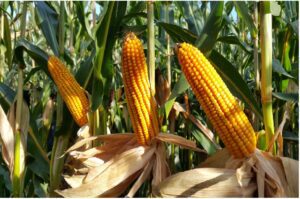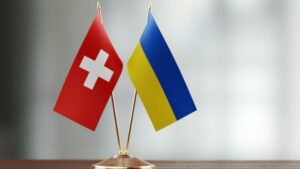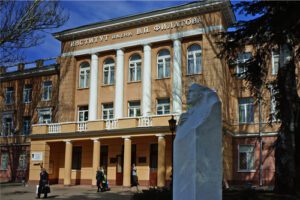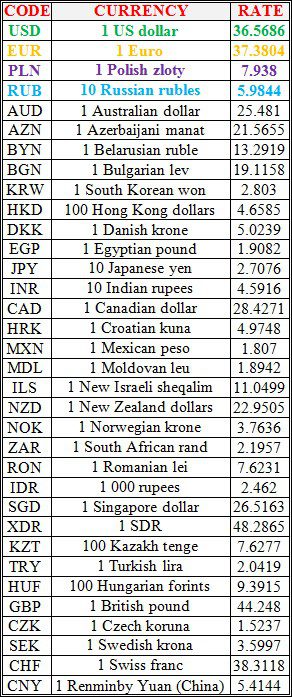
The international research company Corteva Agriscience has established export supply chains for corn seeds from Ukraine to the EU, and in the context of the Russian military invasion plans to increase its exports to European countries by 16 times by the end of the year compared to last year.
According to a press release from the company, as of early August, it has already shipped 3,000 tonnes of corn seeds grown at its seed complex in Poltava region to the European Union.
The company clarified that, for security reasons, it suspended the operation of the seed plant immediately after the start of the Russian invasion of Ukraine, but at the initiative of the employees themselves, after some time, resumed the operation of the enterprise. The launch of its work made it possible to provide Ukrainian farmers with seed material that is critical for the sowing campaign.
Corteva, in the context of Russian aggression, also for security reasons, refused to supply seeds of Ukrainian production by land to the countries of the Caucasus and Central Asia, but expanded logistics to the EU as much as possible.
“On the production lines of the Corteva plant in Ukraine, high standards of seed production have been introduced, which allow us to produce goods that meet all the quality criteria adopted in the EU. Seeds are controlled by many indicators at all stages of production – from field to bag, and meet the maximum requirements of both Ukrainian, and foreign farmers choosing Corteva genetics,” the company said.
Earlier, in April, the company decided to leave the Russian market due to the military aggression of the Russian Federation against Ukraine.
Corteva Agriscience is a global agricultural company. It offers farmers comprehensive solutions to maximize yields and profitability. It has more than 150 research facilities and more than 65 active ingredients in the portfolio.

The Ministry of Foreign Affairs of Ukraine is working to protect the interests of Ukrainian citizens located on the territory of the Russian Federation, in particular, citizens illegally taken out of the territories temporarily occupied by the Russian army, Ukrainian Foreign Ministry spokesman Oleg Nikolenko said.
“As you know, there are no Ukrainian diplomatic institutions on the territory of the Russian Federation. On behalf of the President of Ukraine, the Ministry of Foreign Affairs reached an agreement in principle with Switzerland on representing Ukrainian interests on the territory of Russia. The choice in favor of Switzerland was made because of its extensive experience in performing such functions, and we are grateful to the Swiss government for their readiness to provide their good services,” Nikolenko said in a comment published by the press service of the Ukrainian Foreign Ministry.
He noted that the modality of representing the interests of Ukraine in the Russian Federation by Switzerland will be determined by a bilateral agreement. At the same time, according to the Vienna Convention on Diplomatic Relations, the receiving party must provide consent for Switzerland to represent Ukraine’s interests in Russia.

The Institute of Eye Diseases and Tissue Therapy named after V.P. Filatov (Odesa) received medical devices and medicines as part of the Shelter Ukraine charitable initiative, which is being implemented by SiLab Ukraine, Valores Foundation, Teple Misto charitable organization, Vplyv charitable organization in cooperation with Razom For Ukraine.
The clinic told the Interfax-Ukraine agency thanks to this initiative, the institute, in particular, was able to obtain suture materials, medical devices and medicines.
The received medical devices and consumables are used, among other things, in corneal transplantation operations, said Halyna Drozhzhina, the head of the department of pathology and microsurgery of the cornea of the eye.
“Such interventions are almost always the patient’s last chance not to lose sight, and they can only be done with such tools,” she stressed.
She pointed out that during the COVID-19 pandemic and the start of the war, “people hesitated and turned to ophthalmologists at the wrong time.”
“The number of patients in need of such interventions has increased. Therefore, such assistance is extremely necessary for us, it will help prevent vision loss in dozens of patients from different parts of Ukraine,” she said.
The clinic stressed that during the war, the institute, like in peacetime, continues to provide highly specialized ophthalmological care to patients from all over Ukraine, including citizens who were evacuated from the zone of active hostilities.
National bank of Ukraine’s official rates as of 10/08/22

Source: National Bank of Ukraine

Vodafone Ukraine, which is part of NEQSOL Holding, announces the completion of regular interest payments on Eurobonds.
On February 11, 2020, the Company successfully priced its debut international capital markets issuance – 5-year bonds (“Eurobonds”) amounting to $500 million with a yield of 6.20%. Vodafone marked the lowest price in the entire history of Eurobonds issuance by a corporate issuer from Ukraine.
In accordance with the placement conditions, the coupon, namely the interest on the placed bonds, shall be paid every 6 months.
“Despite the difficult conditions caused by the war and the subsequent economic downturn, we continue to fulfill our commitments. This demonstrates the stability of our business and loan funds management efficiency, – commented on the payments Olga Ustynova, Vodafone Ukraine CEO. – The Company remains committed to maintaining a robust liquidity position as well as a sustainable debt leverage profile.”
As of today, the amount of the bond balance is $400 million. The Company has already redeemed and made a premature payment of $100 million.
Vodafone Ukraine has been successfully operating on the international debt capital market since 2018.
—
For additional information, please contact:
Vodafone
Investor Relations
IR@vodafone.ua
About Vodafone
Vodafone is one of the world’s largest telecommunications companies and provides a range of services including mobile voice, data, messaging, fixed broadband and cable television. The operator has mobile operations in 21 countries, partners with mobile networks in 52 countries. As of 31 December 2021, Vodafone had over 300 million mobile customers, 28 million fixed broadband customers. The Company connects over 142 mil IoT devices and platforms. For more information, please visit www.vodafone.com.
Vodafone Ukraine is a leading mobile operator in Ukraine that provides high-speed 3G and 4G Internet services. Vodafone’s investments during the active construction of high-speed Internet networks in 2015-1Q2022 exceeded UAH 32.7 bln. The record investments allowed to provide technological leadership and to develop new technological services – Internet of Things (IoT), technologies and solutions for Smart City, big data analytics, Fintech services, cloud services. Vodafone has over 19 million customers in Ukraine. Since December 2019, Vodafone Ukraine has been part of NEQSOL Holding.
About NEQSOL Holding
NEQSOL Holding is a diversified group of companies operating across industries and countries. The main business areas cover oil and gas, telecommunications, hi-tech, and construction industries.
The group of companies operates in the UK, the USA, Turkey, Azerbaijan, Ukraine, Georgia, Kazakhstan, the UAE, and other countries.